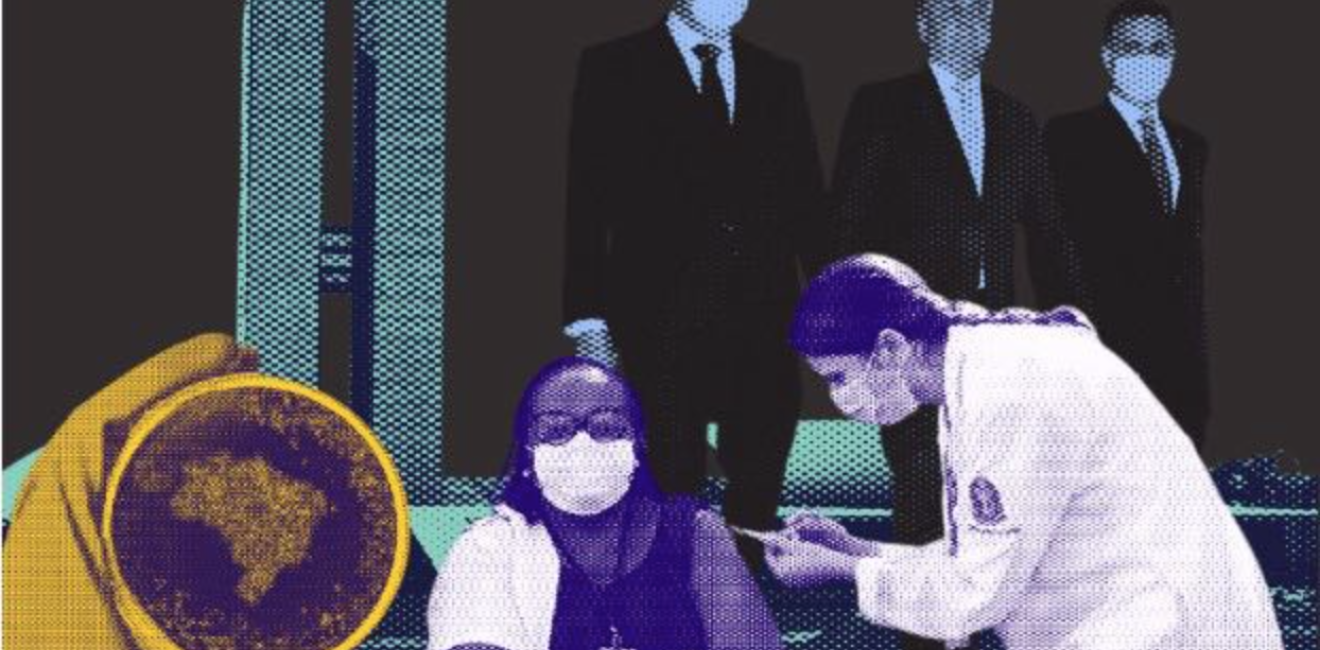
A blog of the Brazil Institute
The following is an excerpt from the Brazilian Report's Q1 Report on Brazil, published on April 14, 2021. To read the full report (behind a paywall) click here.
Preface
This report captures Brazil at a moment of profound crisis and provides a detailed yet comprehensive overview of the challenges the country faces. One year after the World Health Organization declared COVID-19 a global pandemic, Brazil is in the midst of the world’s worst outbreak of the virus. More than 300,000 Brazilians have died from the disease and the daily death toll continues to climb.
The government is focused on vaccines as the solution, but mass vaccinations take time—even in a country as skilled at immunization campaigns as Brazil. On April 1, the National Immunization Program administered more than 1 million vaccine doses for the first time during the pandemic. Yet the average pace is much lower, as shipment delays and other logistical issues have caused significant vaccine shortages across Brazil. Officials from the Health Minister to local mayors are scrambling to secure additional doses from vaccine manufacturers and other international partners. Fewer than 4 percent of Brazilians are fully vaccinated.
In the meantime, the health crisis is urgent and immediate. Hospitals across Brazil are at capacity as cases surge, driven in part by the highly contagious P-1 variant. Experts warn that the health system is near collapse as providers run out of oxygen, intubation medications, and other critical supplies. Brazil now finds itself in the terrible position of being a global petri dish for COVID-19, as its neighbors tighten border restrictions and the world watches with alarm.
The deepening public health crisis and economic stagnation has also increased pressure on President Jair Bolsonaro, whose approval ratings are at the lowest point of his presidency. Unemployment is at 14 percent and inflation is rising. A recent stimulus plan offers some relief to the most vulnerable Brazilians, but it complicates government efforts to rein in spending and curb the national debt.
Meanwhile, the political environment has become more difficult for President Bolsonaro, both at home and abroad.
The inauguration of Joe Biden as president of the United States has left Bolsonaro without an important ideological ally on the global stage. The Biden team is full of seasoned, pragmatic operators willing to engage, but they will expect more than rhetoric from the Brazilian side when it comes to climate change. Nonetheless, if Bolsonaro has trouble managing his relationship with the United States, he will have trouble with everyone.
Within Brazil, the return of former President Luiz Inácio Lula da Silva has injected new life into the Workers’ Party, while complicating the efforts of other political actors to build a unified, center-left opposition capable of challenging Bolsonaro for the presidency in 2022. At the same time, the powerful "Big Center" coalition—frustrated with the lack of progress on the pandemic and the economy—has stepped up its own demands of President Bolsonaro.
Political tensions came to a head on March 29, when Bolsonaro removed or transferred six cabinet ministers in an unexpected shakeup. The firing of the Defense Minister and subsequent resignation of the commanders of the Army, Navy, and Air Force exposed serious tensions within the government over the role of the Armed Forces. The developments suggested to many observers that the president, feeling cornered by Congress, was seeking to exert greater control over the military and his government to stave off impeachment. The picture is one of a president focused on his own political survival rather than the urgent policy responses required to address the pandemic and reduce the loss of life and livelihoods.
Certainly the crisis and chaos in Brasília will do little to reassure those concerned about the state of the country as Brazil enters the second year of the pandemic. The following pages leave little doubt about the obstacles that lie ahead. Yet we take this opportunity also to remind readers that democracy is deeply rooted in Brazil, and the country has the institutional capacity and technical expertise to overcome even the grave challenges of this moment. Time and time again, when faced with poor governance and political turmoil, Brazilians have shown they are capable of pulling their country forward. This resilience and strength will be needed, perhaps more than ever before, as Brazil looks for a path out of the COVID-19 crisis and begins the long process of rebuilding.
The full report is available (behind a paywall) here. Use code BRQ1-20 for a special discount.
Authors


Senior Director, Albright Stonebridge Group

Brazil Institute
The Brazil Institute—the only country-specific policy institution focused on Brazil in Washington—aims to deepen understanding of Brazil’s complex landscape and strengthen relations between Brazilian and US institutions across all sectors. Read more

Explore More in Brazil Builds
Browse Brazil Builds
They're Still Here: Brazil's unfinished reckoning with military impunity



